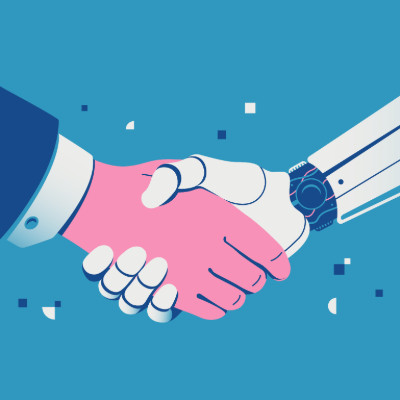Techworx LLC Blog
AI Needs Human Interaction
Pop culture has given us a vivid, if often terrifying, impression of artificial intelligence. When we hear AI, many still picture calculated malice: a HAL 9000, a Skynet, or an Ultron.
The real potential of AI is far more productive, it's less about calculating world domination and more about becoming your organization's most helpful collaborator. Think of it as a JARVIS for your executive team or an R2-D2 for your operational staff: a powerful tool that assists your team in generating ideas, solving complex problems, and completing high-volume tasks. Critically, maximizing this potential doesn't require new hardware; it requires sharpening the very soft skills we already value in our top performers: curiosity, empathy, and resilience.
Let’s reframe the conversation around how we can leverage these fundamental human skills to better utilize this powerful tool.
AI is Collaborative Technology. It Needs a Human Partner.
Since the term artificial intelligence was first established in 1956, the core objective has been to emulate human capabilities like language, problem-solving, and abstract reasoning. AI serves as a logic engine, but to achieve meaningful, business-critical results, it requires human guidance.
The user—the human element—is the key strategic partner in this equation. We take the raw computational power of AI and direct it to create bigger, better, and more valuable outcomes. The question, then is: How can developing superior soft skills enable us to use AI's hard logic to produce superior outcomes?
By encouraging your team to actively develop and apply these soft skills, your entire business will be better positioned to gain maximum strategic value and return on investment from AI applications.
The Soft Skills That Drive Maximum Value from AI
Curiosity: The Key to Higher-Quality Output
The rule for AI engagement is simple: you get what you give. Vague inputs will only ever return generalized, low-value responses. A curious mind, however, instinctively goes the extra mile to consider the necessary details and constraints that will generate a precise, actionable answer.
Consider the difference in these two prompts:
Vague Prompt: "Give me a campaign idea."
Curious Prompt: "Draft three campaign concepts for a B2B SaaS product launch targeting mid-market firms in the logistics sector, focusing on a 15 percent efficiency gain and including a unique value proposition, a suggested call-to-action, and three proposed headlines."
The first yields generic filler. The second provides a high-quality strategic starting point because the user's curiosity forces them to define the audience, objective, and constraints. Training your team to ask better questions is the most direct path to better AI output.
Empathy: Human Insight
At its core, all AI can deliver is a series of ones and zeros; a calculation. It can crunch numbers, and identify patterns with unmatched speed. Machines, however, lack context and, critically, empathy. This human skill is essential for interpreting AI's raw output.
Sure, an AI could parse thousands of customer feedback forms and report: "The word 'frustrated' appeared 150 times, and 'satisfied' appeared 250 times."
A leader with empathy does not simply green-light the product based on the higher score. They understand that those 150 instances of "frustrated" might be concentrated in a single, high-value client, or related to a very specific, fixable bug. It takes the human touch to interpret the emotional context and intent behind the data, ensuring the feedback is used in the strategic way it was meant to be.
Turning Errors into Success
AI is definitely one of the most powerful tools that has come down the pike, but it is not infallible. It is prone to hallucinations where they generate confident but completely fabricated information. Relying on the first output is a recipe for errors and mediocrity.
This is why resilience is vital. Instead of giving up when the first response is lacking, a resilient team views it as an opportunity for refinement. They don't just accept generic marketing ideas; they iterate on them. They adjust the prompt, add more constraints, provide new background data, and continue collaborating with the tool until a truly creative and effective result is achieved. Resilience ensures the team pushes past the surface-level output to unlock the deep value AI can provide.
A Collaborative Partnership
Ironically, as technology advances, our fundamentally human skills become even more essential. They are the strategic differentiators.
We dedicate ourselves not only to understanding advanced technologies like AI but also to understanding why our clients use them: to empower the businesses their teams work so hard to support.
We are ready to empower you next. By combining advanced, cutting-edge technologies with the professionalism and human strategic capabilities of our team members, we help you master the tools that will define the next era of business success.
Reach out to TechWorx LLC to learn more about how we can help your team turn AI from a science fiction concept into a strategic competitive advantage.


Comments